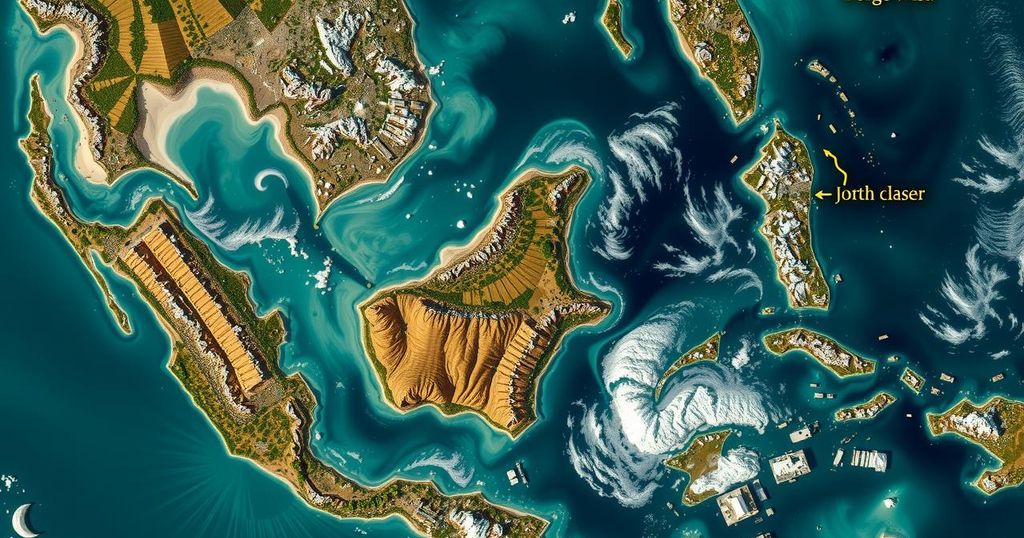Tropical Cyclone Chido made landfall on Agalega on December 11, 2024, as a Category-4 storm, causing extensive destruction and displacing many residents. After affecting Agalega, it severely impacted Mayotte, leading to devastating infrastructure damage and significant humanitarian concerns. Emergency responses are underway amid fears of a rising death toll and ongoing difficulties in rescue efforts.
On December 11, 2024, Tropical Cyclone Chido, classified as a Category-4 equivalent cyclone, struck the island pair of Agalega in the Indian Ocean, unleashing winds of 222 km/h (138 mph). This cyclone represents the most intense storm to impact Agalega since 1983. Significant damage has been reported, particularly on the North Island, where residents fled to the airport for safety as storm surges reached 8 meters (26 feet) and communications were cut off, severely impacting infrastructure and housing.
Following the cyclone’s landfall, the Mauritian government quickly mobilized assistance. Mauritian Minister Shakeel Mohamed announced a Coast Guard Dornier aircraft was dispatched, complemented by an imminent arrival of an Indian cargo plane to aid relief operations. The cyclone’s path extended northward toward northern Madagascar before striking Mayotte on December 14, where it inflicted catastrophic damage via torrential rains and winds of 220 km/h (136 mph).
Mayotte experienced extensive destruction, including the flattening of homes and widespread infrastructure damage, notably to hospitals and the airport. The storm disrupted power and communication services, leaving communities isolated. Initial estimates indicate that approximately one-third of Mayotte’s 320,000 residents have become homeless, exacerbated by shortages of potable water and medical supplies. Emergency teams are deployed, but access is hindered by floodwaters and blockages in key areas.
As of December 16, officials expressed concern over a potential rise in the death toll, with hundreds possibly unaccounted for. The ongoing assessment of the cyclone’s impact is still underway, highlighting the dire situation faced by the affected populations.
Tropical Cyclone Chido is part of a series of extreme weather events attributed to climate change, with increased intensity and frequency of cyclones observed globally. The cyclone made a direct impact on Agalega and subsequently moved to Mayotte, highlighting the vulnerabilities of island communities to extreme weather. The devastation caused in both locations illuminates the urgent need for effective disaster management and preparedness strategies, especially in regions prone to severe weather events. Understanding the implications of Cyclone Chido is crucial for future resilience efforts in the Indian Ocean’s island territories.
In conclusion, Tropical Cyclone Chido has wrought significant devastation on Agalega and Mayotte, with dire implications for the local populations. The immediate response from authorities shows a commitment to recovery, yet the extent of the damage remains alarming. Continuous evaluation of the situation is essential as affected communities grapple with isolation, destruction of infrastructure, and an unclear humanitarian toll. This incident underscores the critical importance of disaster readiness in vulnerable regions.
Original Source: watchers.news







